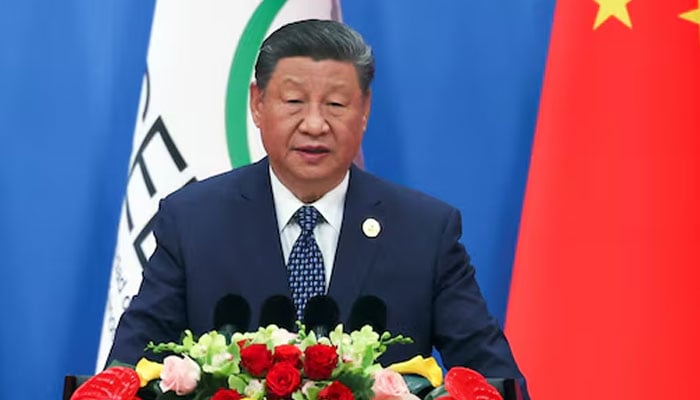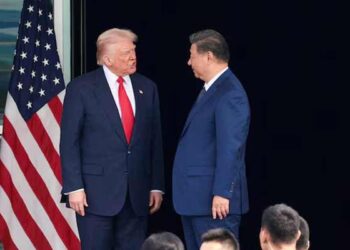Select Language:
BEIJING: On Tuesday, President Xi Jinping signed a treaty aimed at strengthening ties between China and Central Asian nations as Beijing seeks to enhance cooperation in trade, energy, and infrastructure within this resource-rich region.
In response to Russia’s invasion of Ukraine, China has been actively working to bolster economic relationships with Central Asian countries that have historically been influenced by Russia, attracted by their strategic position and abundant energy resources.
During a regional summit in Kazakhstan’s capital, Astana, Xi celebrated a significant milestone by signing a treaty of “permanent good-neighborliness and friendly cooperation” with leaders from Kazakhstan, Kyrgyzstan, Tajikistan, Turkmenistan, and Uzbekistan, according to the official Xinhua news agency.
This year’s summit marks the second such meeting, following the first in northwest China in 2023, both timed to coincide with gatherings of G7 leaders.
“The world is currently undergoing rapid and unprecedented changes, entering a new era of turbulence and transformation,” Xi stated in his speech at the summit, as reported by Xinhua.
“Trade wars and tariffs have no winners, and one-sided approaches, protectionism, and hegemony are likely to harm everyone involved,” he remarked, indirectly criticizing the United States for its escalating tariff strategies against China.
“China stands ready to collaborate with Central Asian nations to uphold international justice and oppose hegemonic and power-driven politics,” Xi declared.
Additionally, he committed to providing 1.5 billion yuan (approximately $208.86 million) this year as grant assistance to these Central Asian countries, supporting their development initiatives and livelihood projects. He emphasized the need for more collaboration in trade, mining, and agriculture.
Even with a temporary truce in trade relations with the U.S., Beijing is focused on strengthening its partnerships in the region.
China’s trade with the five Central Asian nations reached a record 286.42 billion yuan in the first five months of this year, reflecting a year-on-year increase of 10.4%, as reported by Chinese customs authorities.
Turkmenistan, a key supplier of natural gas to China, is the only Central Asian country exhibiting a trade surplus with China, while Kazakhstan and Kyrgyzstan face trade deficits in the tens of billions.
Collaborating on Energy and Minerals
In separate meetings with regional leaders, Xi advocated for enhanced cooperation in natural gas, minerals, international railways, and law enforcement, as detailed by the Chinese foreign ministry.
During talks with the presidents of Uzbekistan and Kyrgyzstan, he urged progress on the China-Kyrgyzstan-Uzbekistan railway—an overland route that avoids Russia.
This project, under discussion since the 1990s, has gained newly recognized significance due to sanctions on Russia that drive shippers from China to Europe to seek alternative transport routes.
The five former Soviet republics provide China with alternative avenues for securing energy and food supplies should other routes be disrupted.
In the long run, the Central Asia route could significantly reduce freight transport times between China and Europe.
In a separate meeting with Turkmen President Serdar Berdymukhamedov, Xi expressed that “both sides should expand the scale of natural gas collaboration, explore partnerships in non-resource sectors, and improve the trade structure.”







